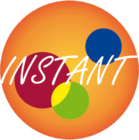

The group is engaged in a range of third-party funded projects. On the one hand they comprise of international PhD scholarships funded e.g. by the Austrian Academic Exchange Service (OeAD), the Thai Royal Golden Jubilee Grant Foundation, the IMF and the Pakistani Higher Education Commission. On the other hand international cooperation especially on the European level form one of the backbones of the activities. Currently, two larger projects are ongoing.

EU-FP7 ISIS
www.isis-project.eu
ISIS is a three-year project (2014-2016) that aims at developing sensor systems for early detection of chemical and biological contaminations in drinking water networks. These systems should allow for immediate consumer risk assessment. The consortium comprises 3 universities, 1 large research center, 4 SME and 2 drinking water suppliers and is coordinated by one of the SME, namely C-Tech Innovation, Chester, UK.
EU-FP7 PHOTOSENS
www.photosens.eu
The 3-year PHOTOSENS project aims for a disposable, mass-producible sensor chip for generic multi-parameter sensing applications. A key requirement is to perform screening tests without specialized infrastructure. By combining nanophotonics, tailored polymer materials and mass-manufacturability, the project is challenging conventional analytical techniques which usually require expensive equipment and personnel.

This EU-funded TEMPUS project aims at implementing modern teaching methodology at Central Asian Partner Universities in Uzbekistan and Kazakhstan. The group at the University of Vienna is the grantholder, other EU partners are the Vienna University of Technology (AT), the Technical University of Munich (DE) and the Open University (UK).

EU-FP7 INSTANT
http://www.instant-project.eu/
INSTANT will last for 3.5 years and aims at developing a simple analysis tool for artificial nanoparticles in aqueous systems. This tasks joins five SME and three universities as well as a government institution. The final goal is to detect nanoparticles typtically occurring in cosmetics or foodstuff.
Until February 2010, the predecessor group was active in the EU-FP6 project NANOSECURE dealing with integrated detection and detoxification of chemical and biological agents. Project information can be found at http://cordis.europa.eu/projects/rcn/81535_en.html.
University of Vienna
Währinger Straße 38
1010 Vienna
T: +43-1-4277-52301
F: +43-1-4277-9523





